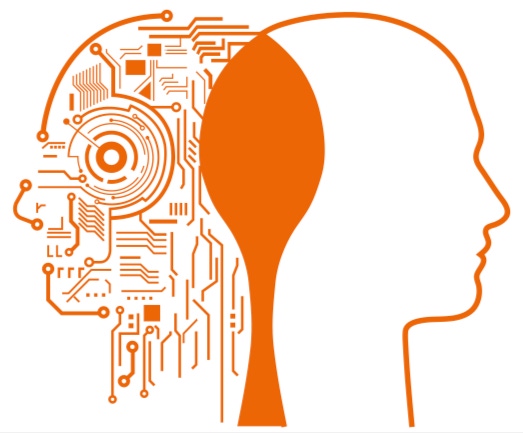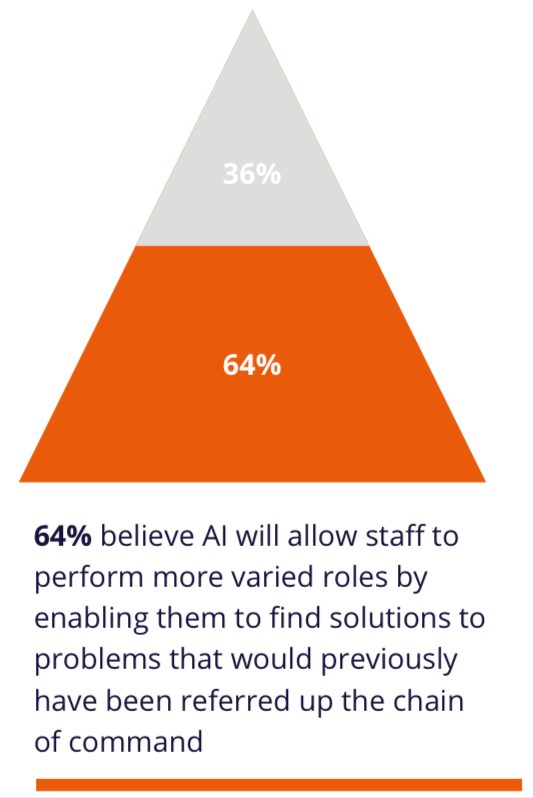AI Can Build Equality and Diversity In The Workplace, New Study Finds
March 2, 2018

AI in the workplace could eliminate bias and lead to a more meritocratic workplace, according to a new study by Pegasystems and Marketforce. The study surveyed 845 senior executives from top players in industries as diverse as financial services, insurance, telecoms, travel, insurance, manufacturing, and more.
The report takes a wide-lens look at the future of work, from the changing make-up of the C-Suite to the changing nature of work and the role of customer care agents in the future. "Contrary to doomsday headlines about widespread job losses, our findings suggest AI and automation's impacts will be much more nuanced and could even have a positive impact on how we work," the authors argue.

They outline how machines are more likely to augment the work of customer care agents and administrators than destroy it. "Customer-facing employees may also find smart machines eliminate the mundanity and frustrations of their day-to-day role. The smart machine won't tell the agent what to say but will anticipate the customer's needs and ensure the human has access to all relevant data to meet those needs, without the need to rekey data or flick between screens, creating disappointing and disjointed customer journeys."
As businesses and organisations across society come under deepening scrutiny over internal diversity and equality, the study offers a number of interesting insights into how AI could boost these prospects. 76% of senior executives surveyed believe support from AI will allow workers to make informed decisions at a more junior level, leading to a flattening of traditional hierarchies.
Meanwhile, AI could prove a leveller in selection, recruitment, performance reviews and remuneration policies. 66% believe the widespread use of AI will give rise to a more transparent meritocracy in the workplace, and 35% even look forward to a decline in office politics as a result.
"Could decades-long arguments about privilege and bias be resolved by the application of machine learning? Two-thirds of our respondents think so, agreeing that as the use of AI becomes common in evaluating the contribution and skill of employees, we will see the rise of a more transparent meritocracy," the authors explain.

Nevertheless, they provide businesses with a warning about bias and accountability in AI. "Intelligent systems built by non-diverse workforces may well inherit implicit bias that undermines their claims to meritocracy, while deep learning black box solutions will need governance to ensure the outputs are consistent with the company's values and equality laws. Companies planning to deploy advanced analytics in the workplace must ensure they are as focused on the ethics and oversight of AI as they are on its promised bottom-line benefits."
"There's no doubt that AI has the power to fundamentally transform the way businesses leverage the talent they have at their disposal," says John Everhard, director at Pegasystems. "Where organisations could once leave themselves open to accusations of bias or privilege in this respect, today's Workforce Intelligence tools can now objectively evaluate an employee's contribution in real time, allowing them to promote and remunerate talent based on the value added by each individual. With the correct level of oversight and governance, this could result in the workplace of the future becoming a far more diverse, meritocratic, and even harmonious place for employees.
About the Author(s)
You May Also Like


.jpg?width=700&auto=webp&quality=80&disable=upscale)
.jpg?width=700&auto=webp&quality=80&disable=upscale)
.jpg?width=700&auto=webp&quality=80&disable=upscale)
.jpg?width=300&auto=webp&quality=80&disable=upscale)
.jpg?width=300&auto=webp&quality=80&disable=upscale)

.jpg?width=300&auto=webp&quality=80&disable=upscale)
.jpg?width=300&auto=webp&quality=80&disable=upscale)